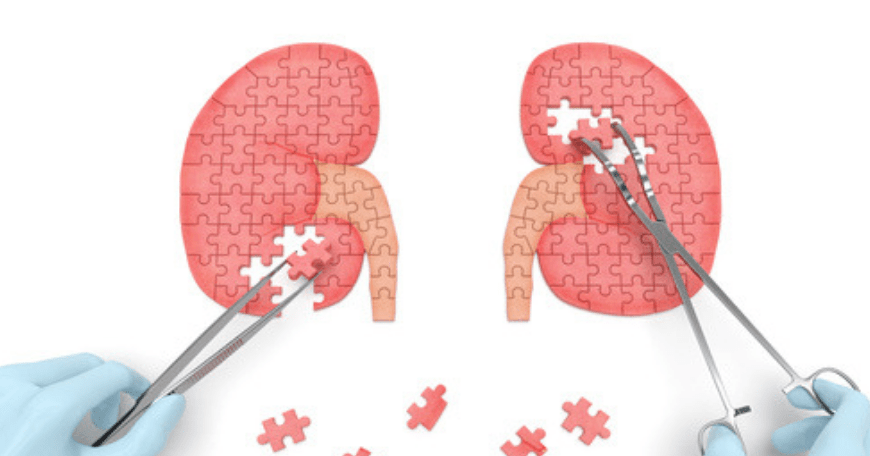Join the Fight Against Kidney Disease This World Kidney Day
606 viewsDo you know kidney diseases kill more than 800 million people every year? Yes, according to The 2018 United Nations High-Level Meetings on Non-Communicable Diseases, Chronic kidney disease is the 6th fastest growing cause of death in the world.
Awareness is not just about prevention, it is also about how to lessen the risks associated with the disease and how to live with it. World Kidney Day is celebrated every year on 14th March. People across the world take part in public screenings to create awareness. This World Kidney Day, let’s raise awareness of the importance of our kidneys.
What’s Kidney Disease?
Healthy kidneys remove waste from your blood and keep a balance of water and minerals in your blood. It makes your vitamin D active. Kidney disease can affect your body’s ability to filter extra water out of your blood. It can also affect the production of red blood cell and Vitamin-D metabolism needed for bone health.
Kidney damage can lead to swelling in ankles, nausea, weakness, and shortness of breath. If the situation gets worse, your kidneys may stop working and it can be life-threatening.
Causes of Kidney Failure:
Majorly, other health problems over a period of time lead to kidney damage. If the damage continues to get worse, you will develop chronic kidney disease. If it becomes extreme, the kidneys will fail to function.
Both type 1 and type 2 diabetes and high blood pressure are the two most common causes of kidney failure.
Other problems that can cause kidney failure include:
- Autoimmune diseases, such as lupus and IgA nephropathy that may hamper your kidneys’ ability to filter wastes from your blood
- Genetic diseases such as polycystic kidney disease
- The Nephrotic syndrome which includes low blood albumin levels, high blood lipids and swelling
- Urinary tract problems
Acute kidney injury occurs if the kidneys fail to work within two days. Some of the common causes of kidney injury are:
- Heart attack
- Less blood flowing to kidneys
- The problem in Urinary tract
Risk Factors
Factors that may increase your risk of chronic kidney disease include:
- Diabetes
- High blood pressure
- Heart and blood vessel (cardiovascular) disease
- Obesity
Symptoms of Kidney Diseases:
You may notice one or more of the following symptoms if your kidneys begin to fail:
- Persistent itching
- Muscle cramps
- Nausea and vomiting
- Loss of appetite
- Swelling in feet and ankles
- Excessive urination or shortage of urination
- Sleeping issues
- Shortness of breath, if fluid builds up in the lungs
- Hypertension that leads to high blood pressure
If your kidneys stop working suddenly, the following symptoms are likely to trouble you:
- Abdominal pain
- Back pain
- Diarrhea
- Fever
- Nosebleeds
- Rash
- Vomiting
These are the symptoms of serious kidney problems. If you have one or more of any of the symptoms above, consult your doctor without immediately.
Treatment of Kidney Diseases:
However, you should not worry as this kind of kidney failure does not occur always. If you do not have other serious health problems, with proper treatment, your kidneys can be normal or almost normal.
- Leave smoking
Smoking over a period of time can damage your kidneys. If you still can’t quit, consult your doctor, join a support group or talk to a counselor regarding medications.
- Maintain a healthy weight:
If you already have a healthy weight, try to maintain it by being physically active every day. Talk to your doctor whether you need to lose weight. Increasing daily physical activity and reducing calories can improve your weight.
- Follow instructions thoroughly on OTC medications:
If you have kidney disease, you should be aware of the proper use of medication. When you use non-prescription pain relievers, such as aspirin, ibuprofen (Advil, Motrin IB, others) and acetaminophen (Tylenol, others), follow the instructions on the package. It’s better to avoid taking too many pain relievers as it can lead to kidney damage. This World Kidney Day, consult your doctor to check the safety of these drugs.
- Take the help of your doctor:
Though often, there is no cure for chronic kidney failure, doctors can survive patients only through dialysis or a kidney transplant.
If you have a poor kidney condition, do not let it increase your risk of kidney disease. Consult your doctor, who can help you figure out the best treatment for you.
Are you suffering from life-threatening kidney disease? We, at Regency Medical Centre, alleviate your pain through quality consultation, treatment and dialysis with the use of world-class technology.
This World Kidney Day, consult our specialized nephrologist today to get a screening test.

